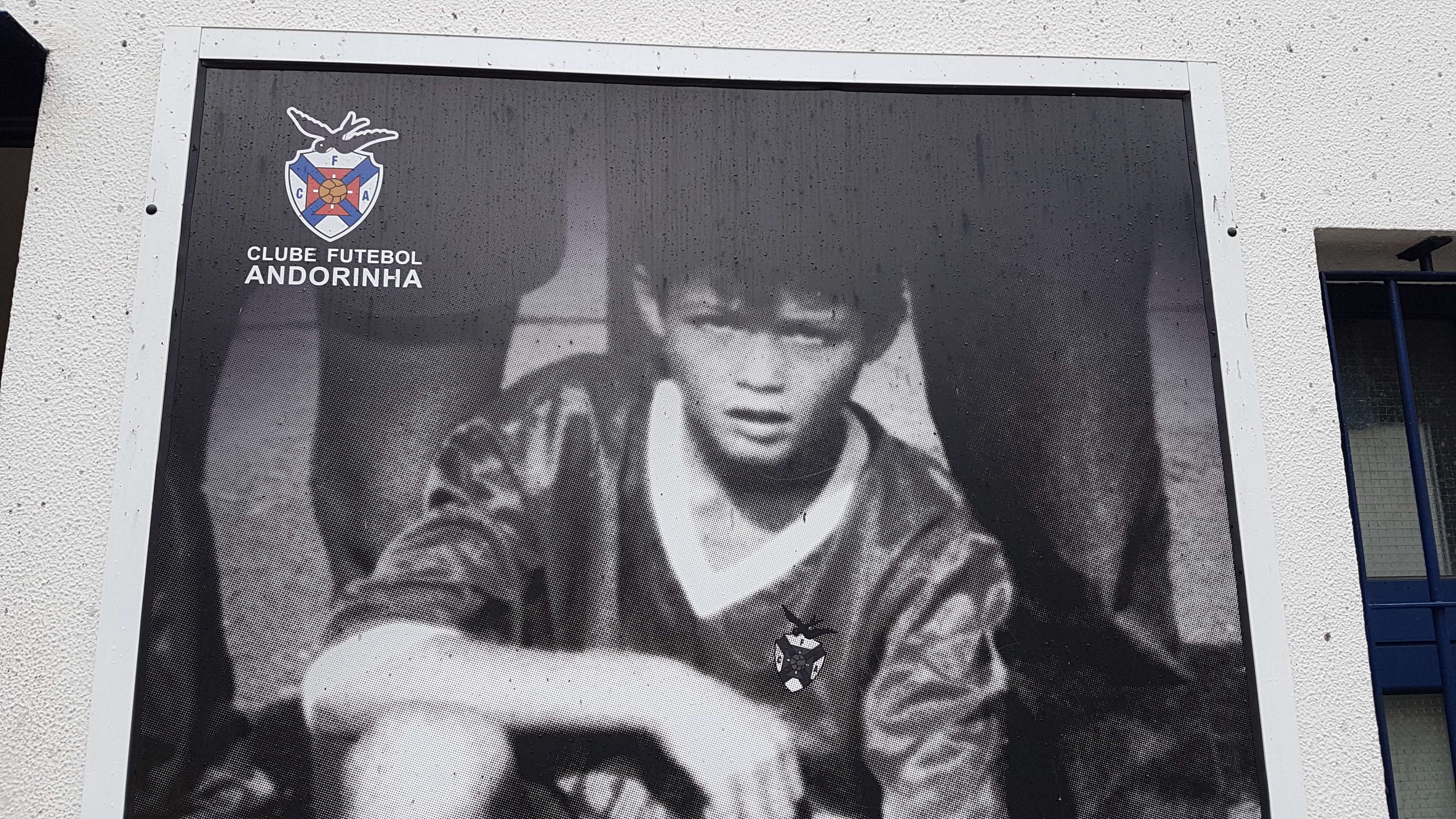Cristiano Ronaldo has come a long way. European champion with club and country in 2016, Liga and Champions League winner with Real Madrid in 2017 and closing in on a fifth Ballon d'Or, the 32-year-old forward is enjoying great success on the pitch.
But things were not always this good. Baby Cristiano was an unplanned child, the youngest in a humble family on the Portuguese island of Madeira. He was born on February 5, 1985 in Santo Antonio, a mountainous neighbourhood and one of the poorest communities of the capital Funchal.
The son of Dolores, a cook, and Dinis, a municipal gardener, the family's final addition was named Cristiano Ronaldo dos Santos Aveiro - the Ronaldo part chosen because of the then president of the United States, Ronald Reagan.
Football was a part of life for the young Cristiano. Father Dinis, an alcoholic who sadly passed away from liver disease in 2005, worked as a kitman at local club Andorinha and asked Fernao Barros Sousa, a player there who had earlier represented the island's biggest club, Nacional, if he would be Ronaldo's godfather.
Next Match
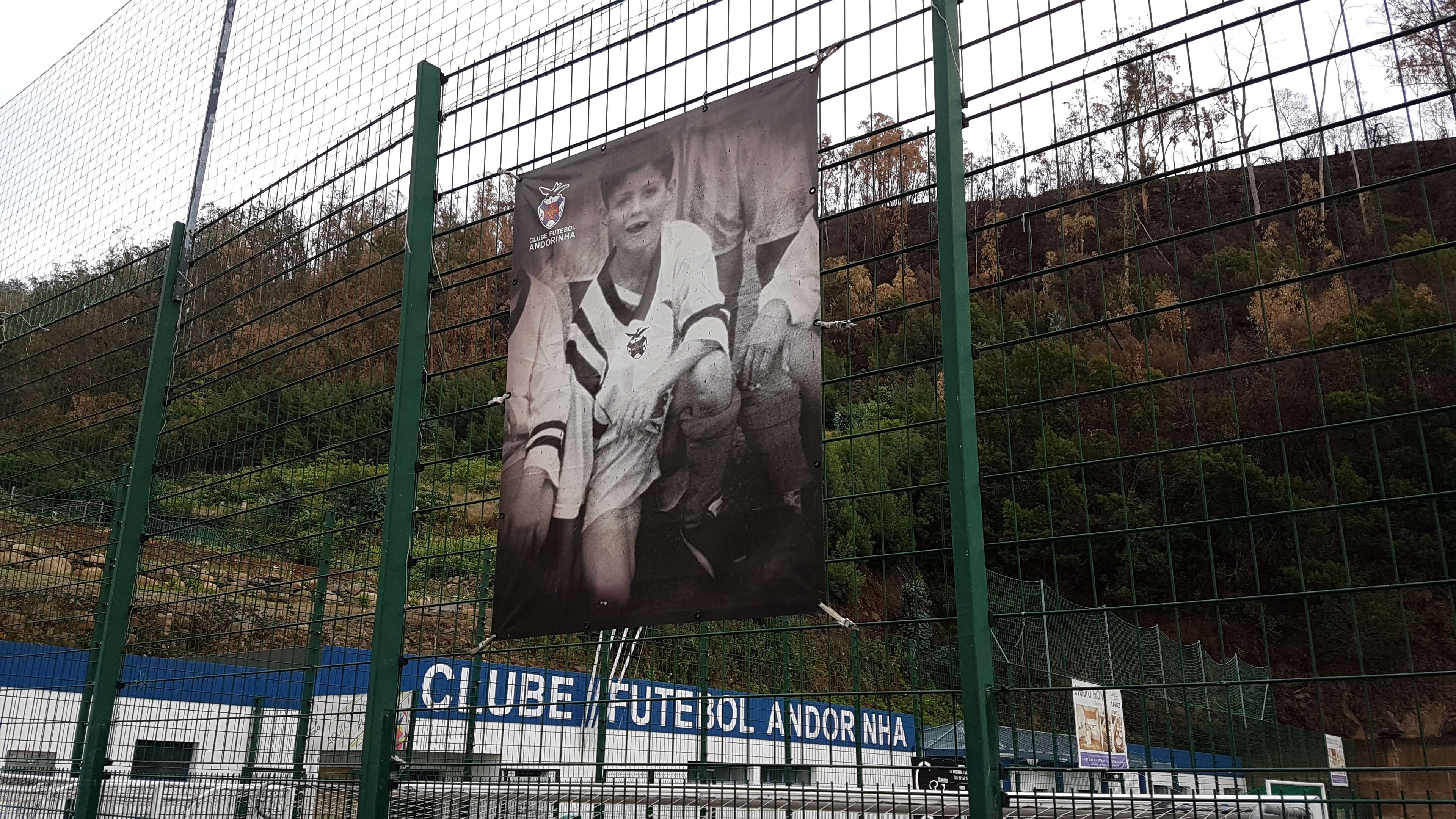 Ben Hayward
Ben Hayward
"I became Cristiano Ronaldo’s godfather because I played for Andorinha, where I met his father, Dinis, and so when Cristiano Ronaldo was born, he asked me if I would be the godfather at his baptism," Barros Sousa told Goal in Madeira.
"That day, Andorinha were playing in Ribera Brava, so I was going there, Dinis as well, and we arrived much later at the baptism, so late that the priest didn’t want to baptise him! We had to convince the priest to baptise him and that’s what happened. It’s a funny thing, it was all ready to start and we weren’t there. It wasn’t good!"
Later, Ronaldo would accompany his father and when he was old enough, he himself ended up turning out for Andorinha's youth side.
"When he was little, he was just like other kids," Barros Sousa explained. "But he had something that was different from the others and that was that he played a lot of football. Even from a young age. When the other kids were studying, he put his studies on the back seat in order to play football.
"You could see it when his father was kitman with Andorinha. He had the bags with the footballs and Cristiano would be with his father, with a ball in hand and playing with the ball. He tried to dribble and obviously he copied the older players. He did that a lot."
Cristiano began to play for Andorinha, his first club, from the age of around eight, and even then, his talent was evident.
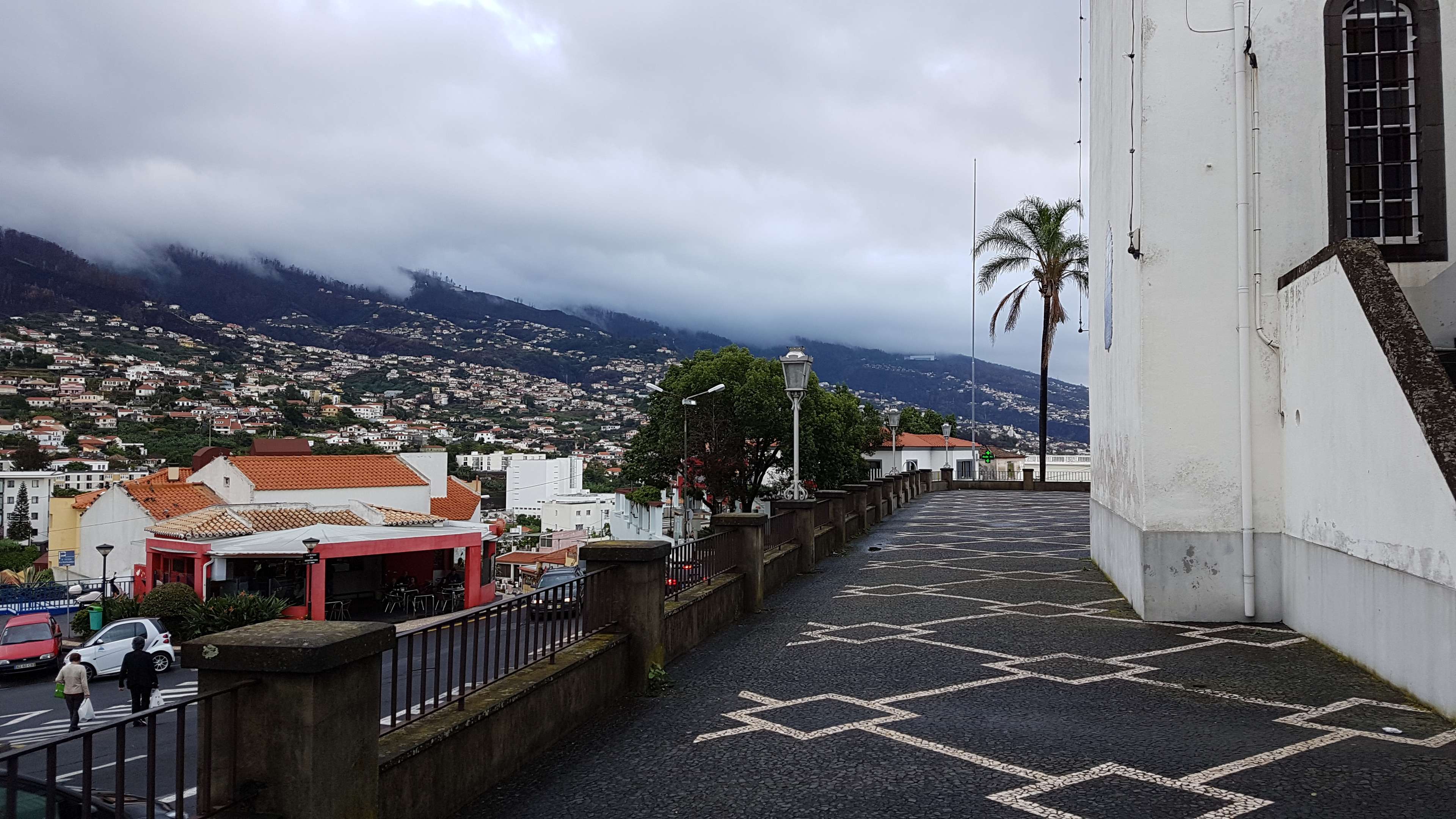 Ben Hayward
Ben Hayward
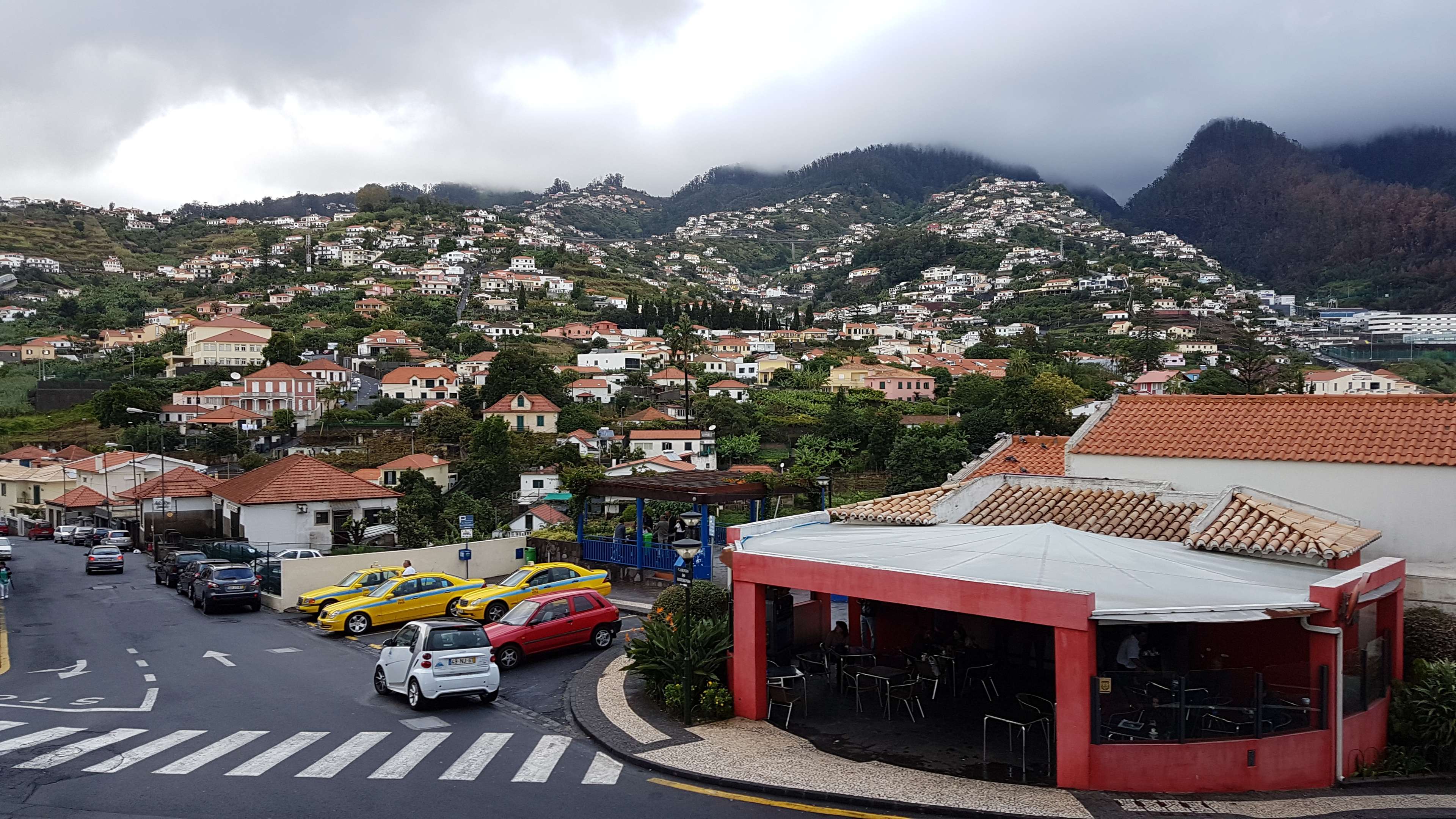 Ben Hayward
Ben Hayward
"We were eight, nine years old," former team-mate Ricardo Santos, now the coach of Andorinha, told Goal. "And at that time, Cristiano Ronaldo was already a great player.
"What I remember about him is that he was a humble kid. And when he didn’t have the ball, he cried. When the team-mates fought, he cried. But he was already a good player. He was faster than average, he already scored a lot of goals and he had great dribbling skills."
"Cristiano really liked winning," Santos added. "When that didn’t happen, Ronaldo cried. So much so that he had the nickname 'crybaby'."
Groundsman Rui, who was also at the club back then, remembers Ronaldo fondly and speaks proudly of the four-time Ballon d'Or winner.
Andorinha played mostly seven-a-side matches back then and Ricardo recalls one game in particular when Cristiano was forced off at half-time.
"I don't remember exactly how many he scored, but he was almost always our best scorer," Santos said. "I remember a game back then that we played in Camara de Lobos. We were winning 3-0, Cristiano Ronaldo went off injured and we lost 4-3."
And he added: "Ronaldo was called 'abelhinha' (little bee) because he was small and he was very quick, so we called him 'abelhinha'."
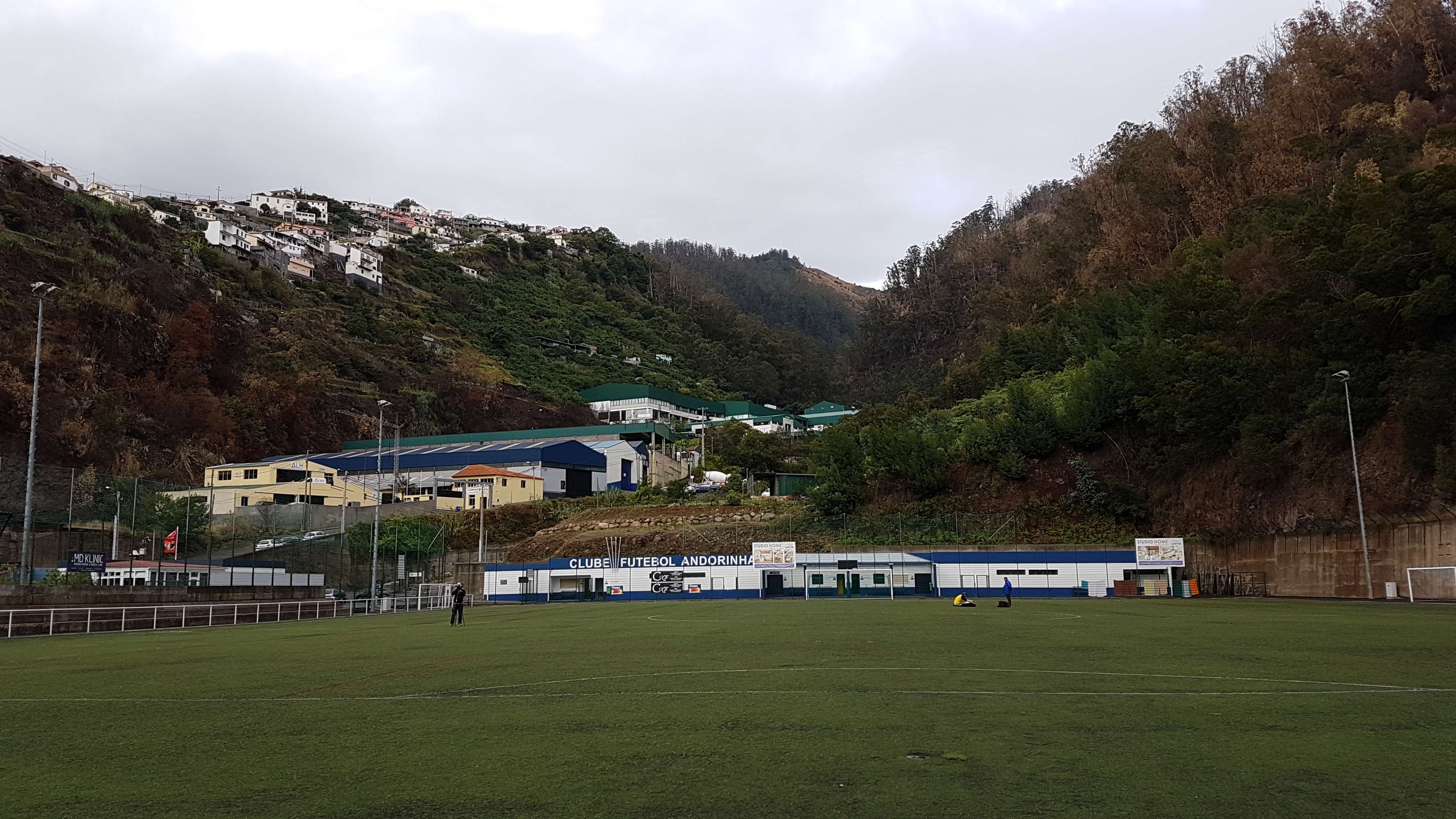 Ben Hayward
Ben Hayward
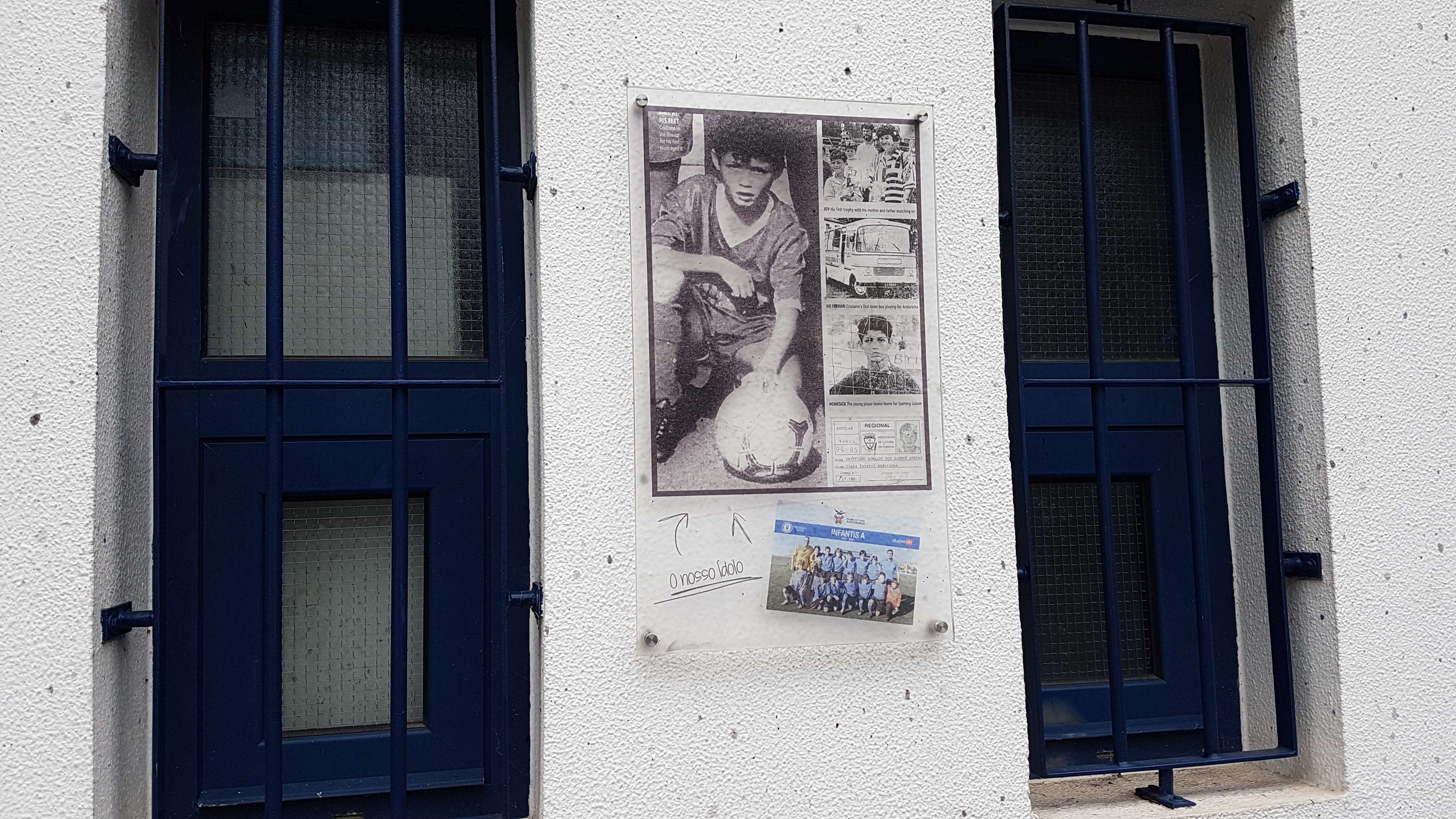 Ben Hayward
Ben Hayward
And as the 'little bee' buzzed around the mud pitches in the Madeiran mountains, it was not too long before other clubs began to take notice - including the island's biggest team, Nacional.
"Cristiano arrived at Nacional when I was in charge of the youth set-up," Barros Sousa said. "I had left Andorinha and one day, Nacional’s coach came along and asked me to watch Andorinha play because there was a very talented boy there.
"So I didn’t waste time: I went there to see Andorinha play and I realised that the boy was Ronaldo! I was interested in taking him to Nacional, so I went to speak to Dolores, Cristiano’s mother, and Dolores supported me. And he came to play for Nacional."
So the same man who had been godfather at Cristiano's christening back in 1985 also ended up playing a pivotal part in the youngster's career as a footballer.
"Here in Madeira his talent was known," Nacional's former youth coach, Pedro Talinhas, told Goal. "The scouts and the people working at the clubs considered him the best youngster in Madeira. He was still young at that time, but they could see he had something special.
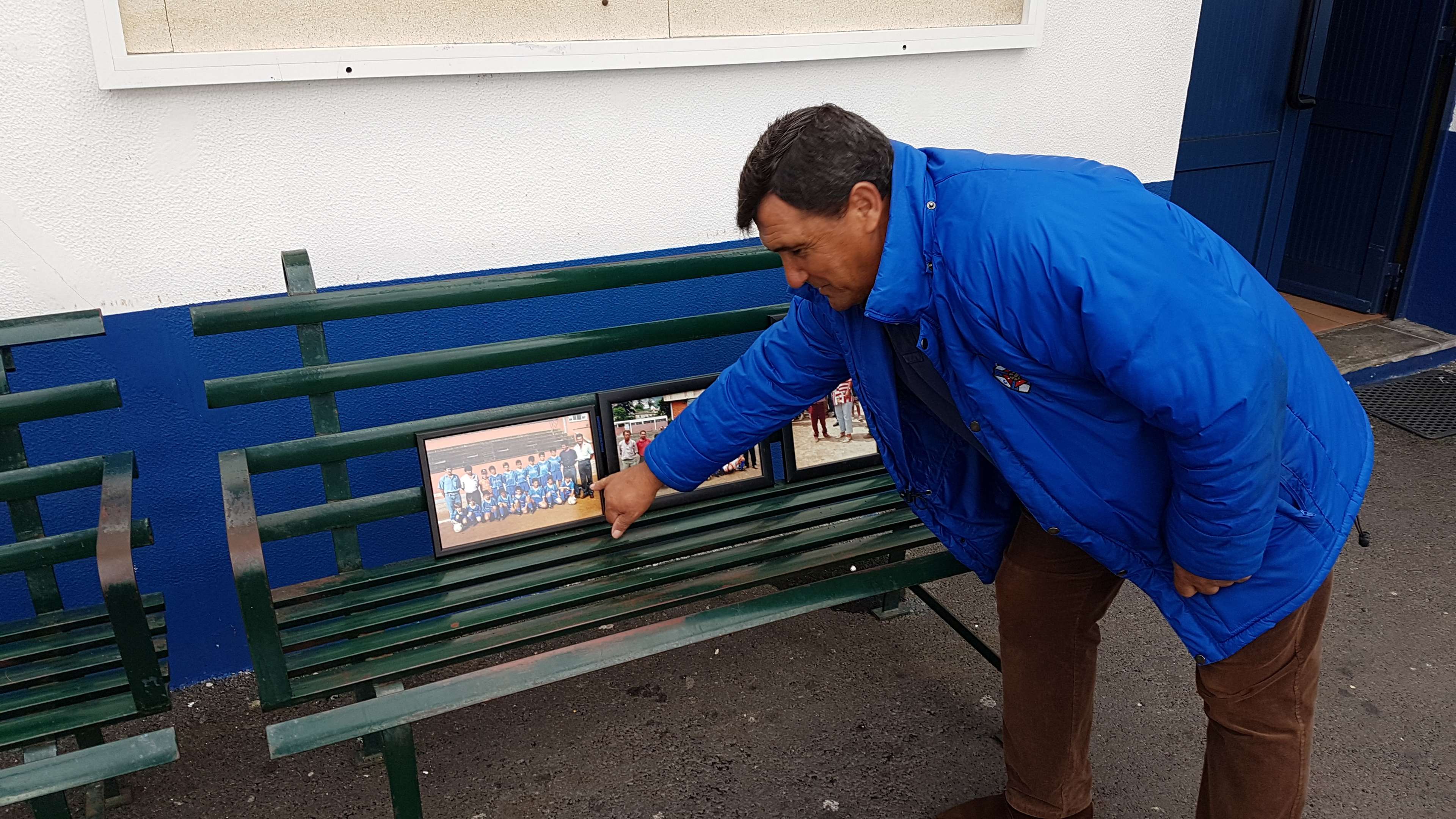
"He arrived here at Nacional at the age of 10. He was a player who was very good technically, he was very good with both feet. He was small, but very technical. Many of the things you see in him today, in his goals, his objective was to score beautiful goals, we could see that then.
"He was fast, great at shooting, he was already powerful."
At Nacional, Ronaldo played seven-a-side and later 11-a-side, often competing against boys from the older teams due to his impressive talents.
"Ronaldo’s second year here at Nacional, I was his coach," Talinhas said. "He was captain of the team, and even though he was a junior in his first year, many times he played against boys that were three years older than him - and often he stood out even then.
"You could see that he was a kid who had immense abilities, immense potential. If he worked, if he continued with that will, he could go on to achieve a lot. Could we see just how far he would go then? No. Just that he had immense ability and immense potential. With hard work and taking his opportunities, he could go up level by level."
And that is exactly what would happen. By then, Cristiano was the outstanding talent in Madeira. However, the island had never even produced a Portuguese international - let alone one of the finest footballers in the world. So it was hard to imagine at that time. It would not be long, though, before Ronaldo took another step forward.
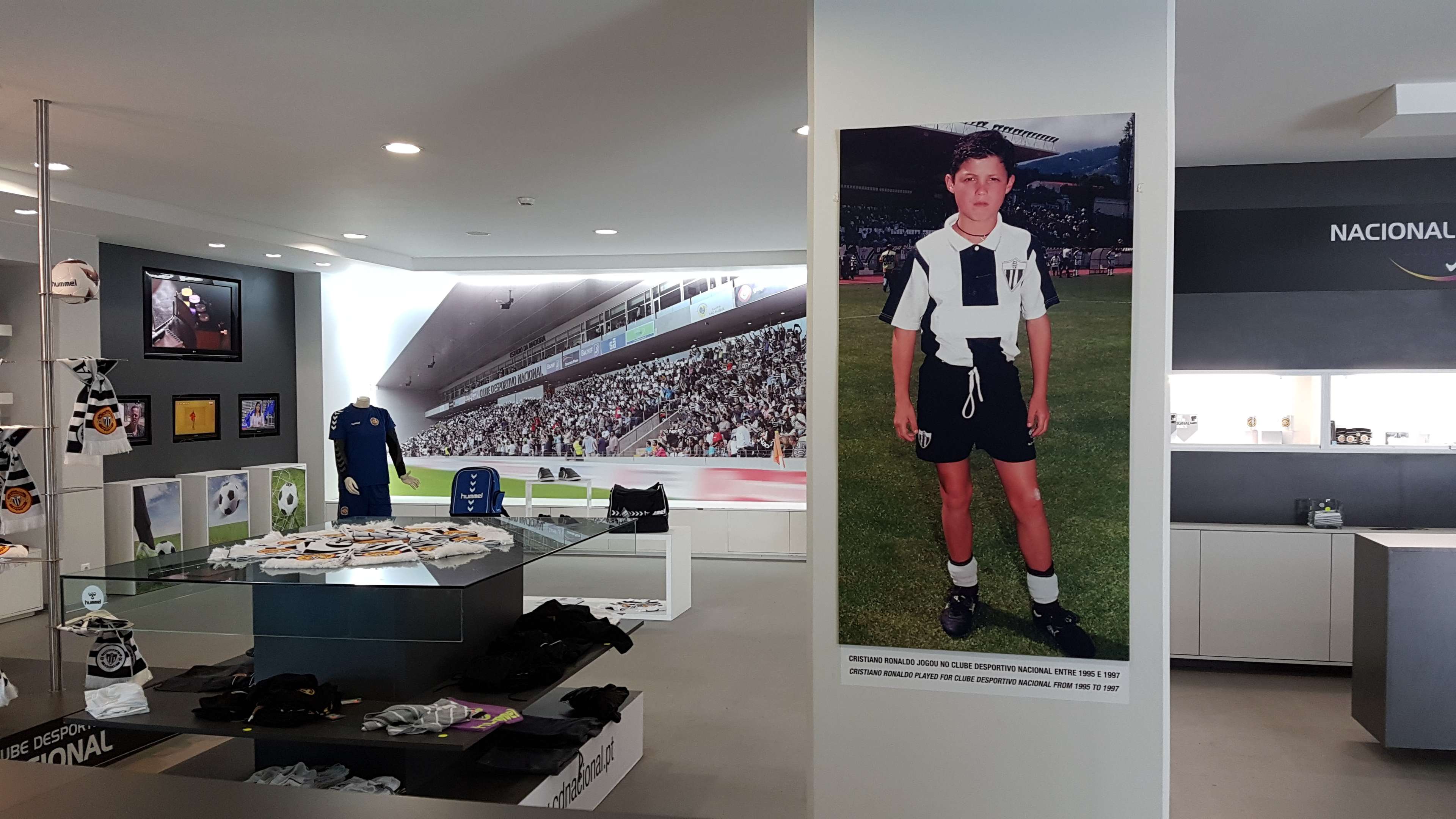 Ben Hayward
Ben Hayward
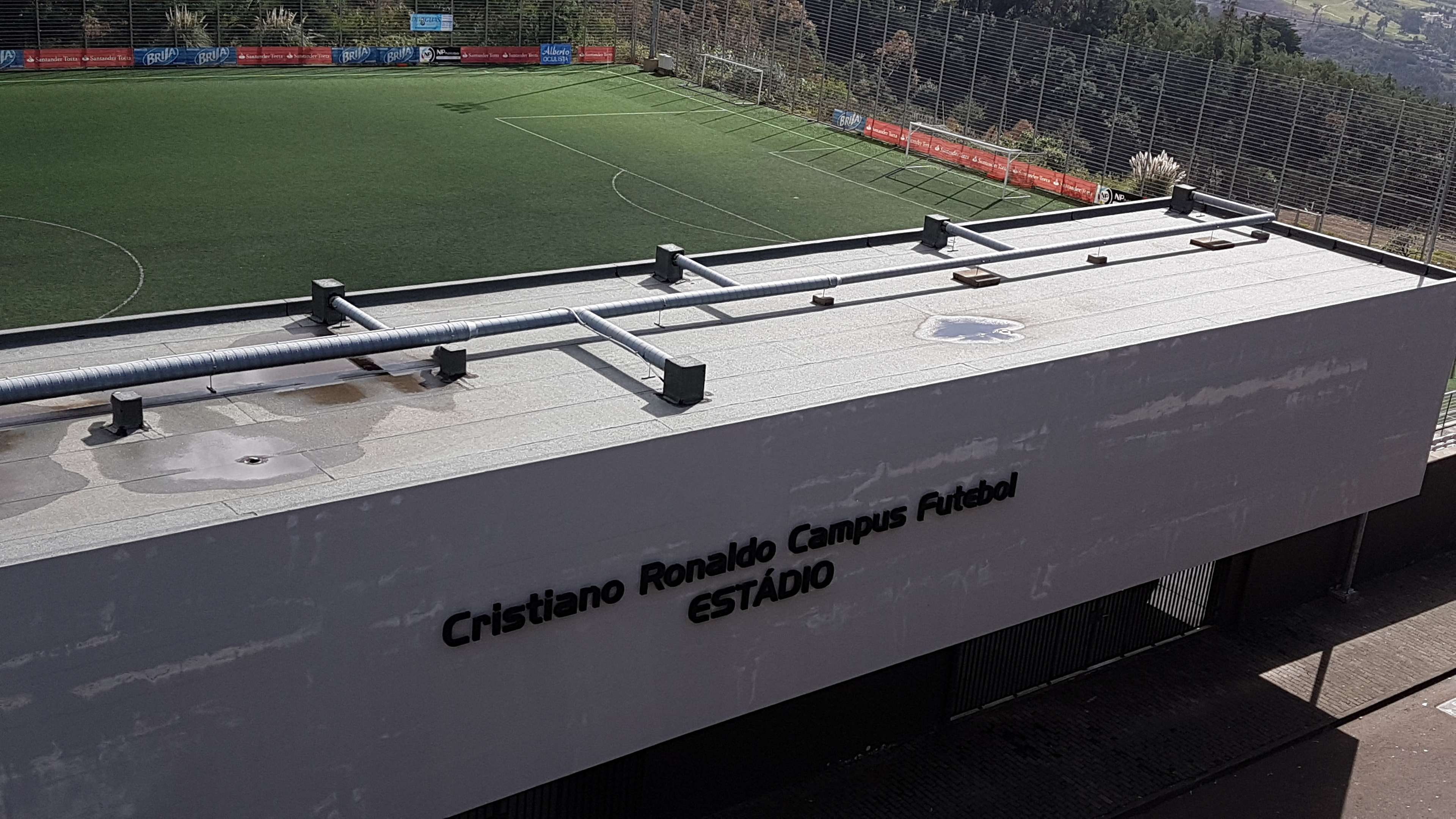
Barros Sousa introduced Cristiano to local magistrate Joao Marques de Freitas, a socio of Sporting CP and a man with strong contacts at the Lisbon-based club.
"We met with the boy, but I had never seen him play football," he told Goal. "What happened? His godfather said that he was good, really good. I’m not a coach, but I called Aurelio Pereira (a Sporting scout), who has a great eye for spotting young players that go on to have great careers. I phoned him and I told him that we had a boy here that they say is very good.
"And he said to me: ‘let’s see if we can bring him over here’. I spoke to Dolores that same day and she said ‘yes’, so I made myself responsible for that. I bought a ticket from Funchal to Lisbon.
"He went on Saturday and three days later, Aurelio told me that the boy was really good. It was still the old Sporting stadium and he was so good that the professionals looked over to check the boy’s skills."
Sporting were impressed and at the age of 12, Ronaldo moved to the Portuguese capital. All on his own. However, there were problems at first.
"It was very difficult for him to adapt in Lisbon because Madeirans have a pronunciation which is very different to Lisbon," De Freitas said. "He had problems at school, they laughed at him, and he resisted. At one point, he wanted to leave, but fortunately he stayed. He went through a bad time."
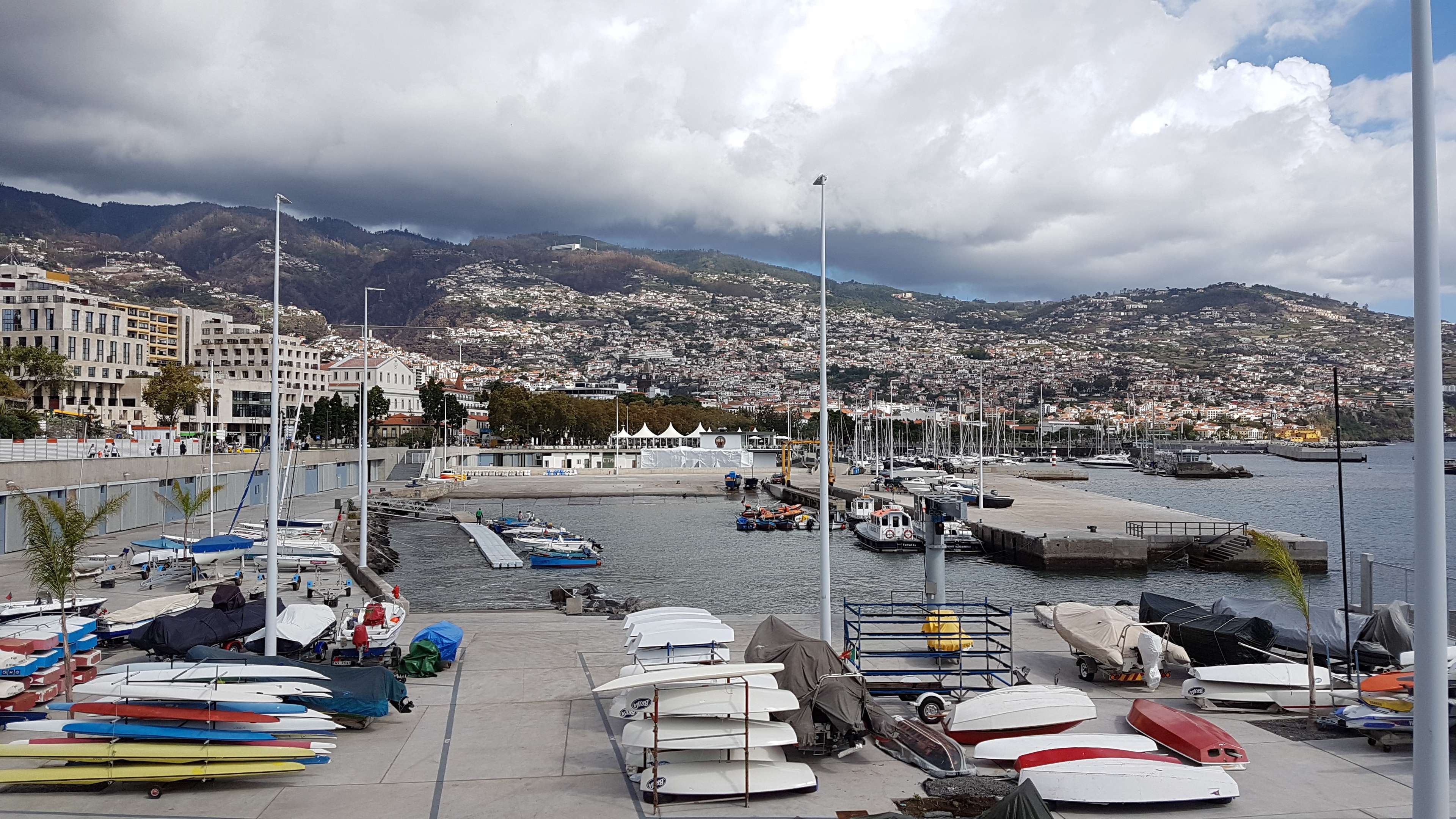
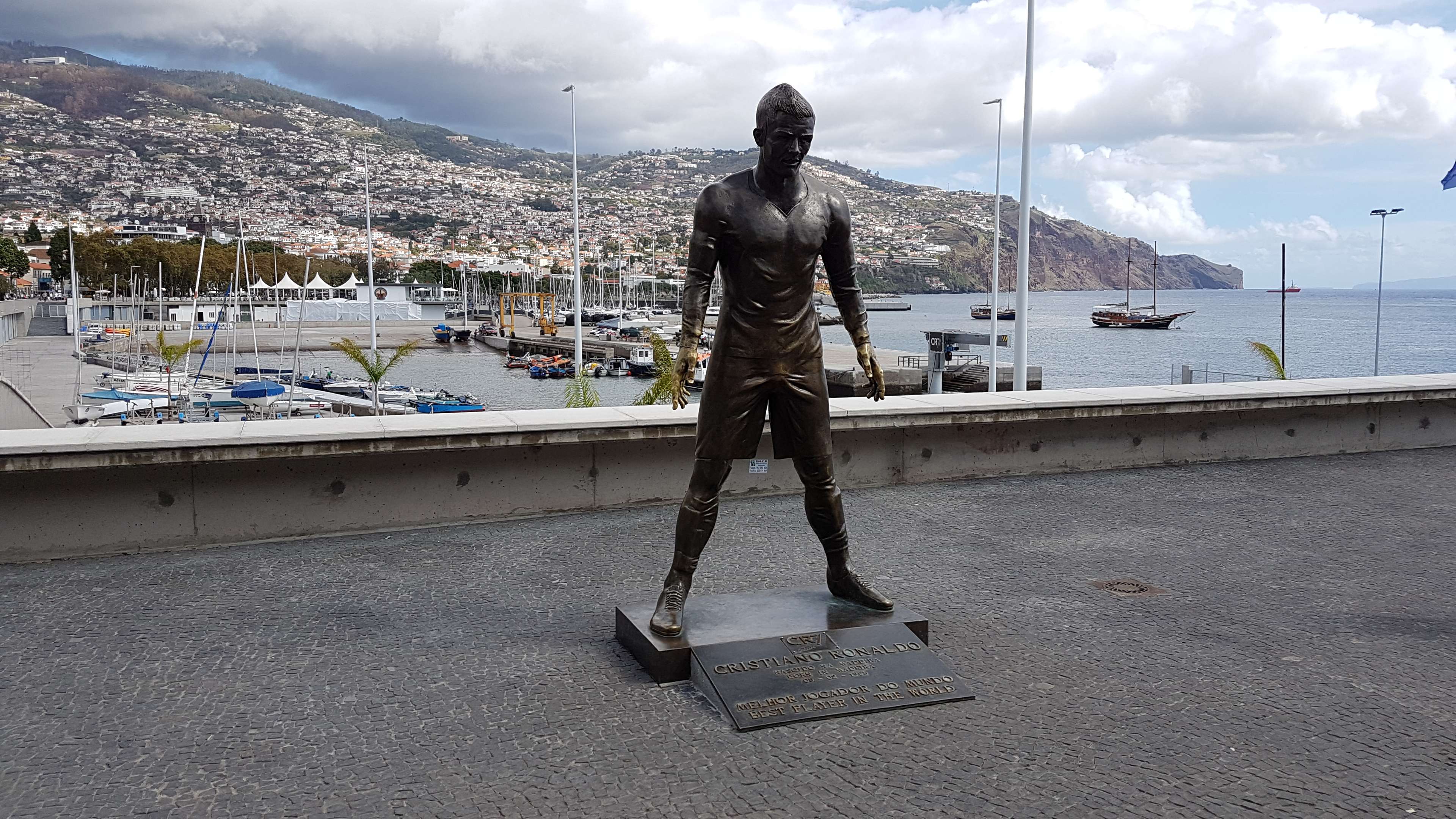
Indeed, at one point, Ronaldo returned to Funchal - sent by Sporting - because he was unhappy on the mainland. And that was almost the end of his dream to make it big as a footballer.
"In the second year, he came back to Madeira," Barros Sousa explained. "Sporting sent him over because they didn’t want an unhappy player, they didn’t want a player who had no desire to be there. So they sent him to Madeira.
"And at that time, I had to intervene and tell them that he had to go to Lisbon and play for Sporting, because he was the future of that family. And that is what happened. I could see he had a future as a football player, and I was convinced because in the first training session in Lisbon, the coach Osvaldo Silva, who is no longer with us, told me that he was a diamond. And that convinced me even more that he was in the right place."
So Ronaldo returned and he never looked back, settling on and off the pitch as he honed his skills in one of European football's finest academies.
"When I arrived, he was already used to being there," goalkeeper Christopher Almeida de Pilar told Goal. "He arrived at the age of 11, he had already made friends. He had his friends. I remember they would all go together to have lunch in a restaurant in Lisbon close to the Jose Alvalade stadium, they would all go together, they sat together and they lived together in the Sporting residence which was below the stadium. They were a family. I think he found it difficult at first, but I wasn’t there at that time."
Pilar played with Cristiano in the youth teams at Sporting and also at junior level for Portugal - and he says Ronaldo's desire to improve set him apart from other players.
"I always thought that we had several quality players in the Sporting academy," he said. "But that Ronaldo was different because of all the work he put in - not so much during the training sessions, but after the sessions. He would always stay and practice for an extra half an hour on the areas he had most difficulties.
"When I arrived at the age of 13, he had an authority about him that was much greater than the rest of his team-mates. The way he trained, the way he motivated his team-mates, the way he corrected them, his will to win, his will to impress, was superior to all the others.
"We all wanted to play football and to please our parents. But not him - his dream was not only to please his family, but everyone who watched him."
After a sole season in Sporting's first team, Ronaldo took another step forward, this time signing for Manchester United following an impressive performance in a pre-season friendly against Sir Alex Ferguson's side in Lisbon.
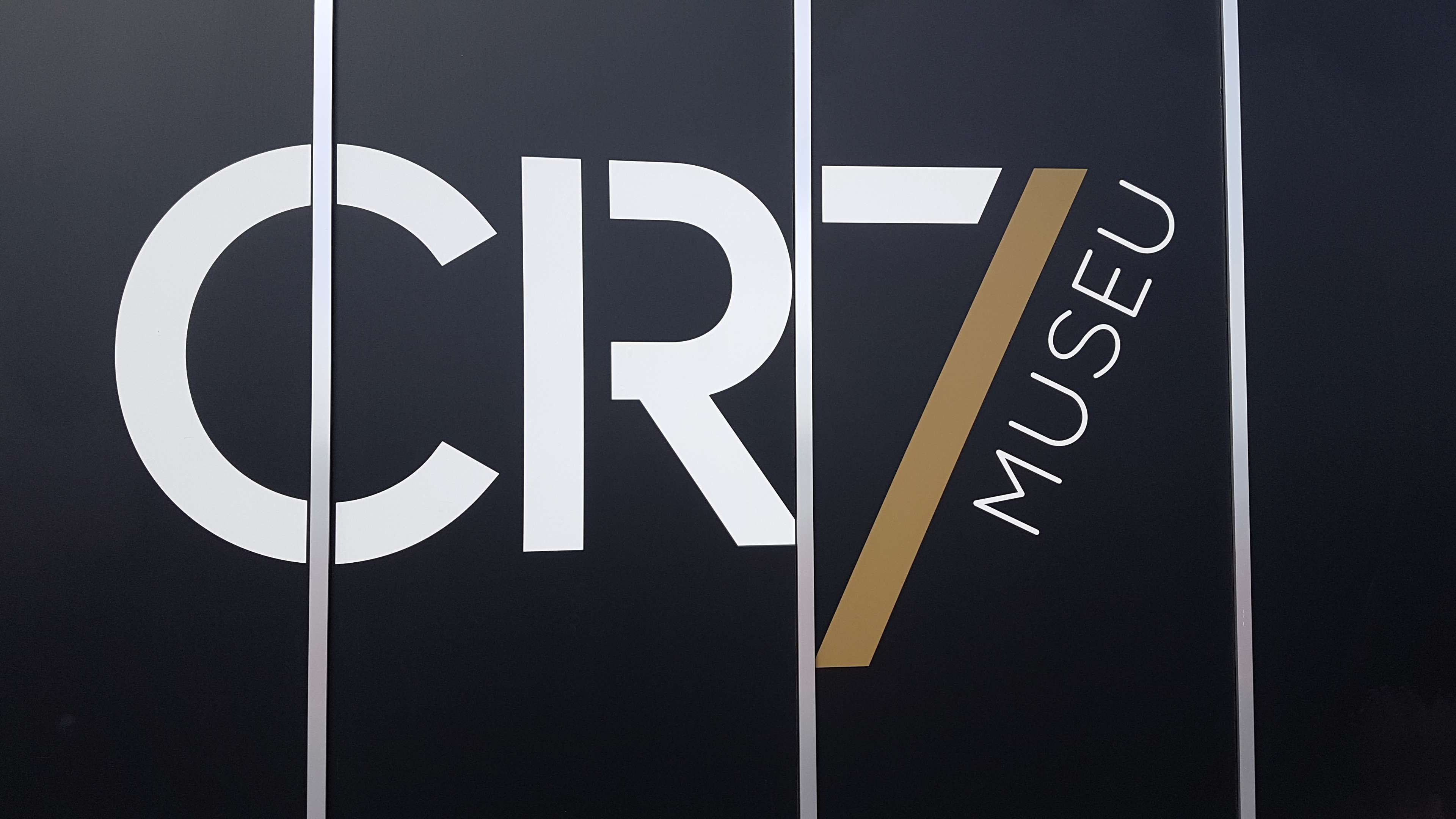 Ben Hayward
Ben Hayward
De Freitas was pitchside for that match and said: "In the inauguration of the new Alvalade stadium, he played for Sporting against Manchester United. And in the first half, he put on a football show.
"Sporting won that game 3-1. He didn’t score a goal but he gave them the run-around. So much so that at half-time, they shouted to him: 'Cristiano'. And three days later, he signed for Manchester United."
From his humble beginnings, Cristiano had made it by the age of 18 to one of the world's elite clubs and former team-mate Santos said: "From the moment he went to Manchester United, all the people began to see his real value. Since then, I think Ronaldo has surprised everyone."
And ex-coach Talinhas added: "To think that one day he would be the best player in the world, and two or three times, we couldn’t have imagined that. He did have immense potential. But yes, we have all been surprised."
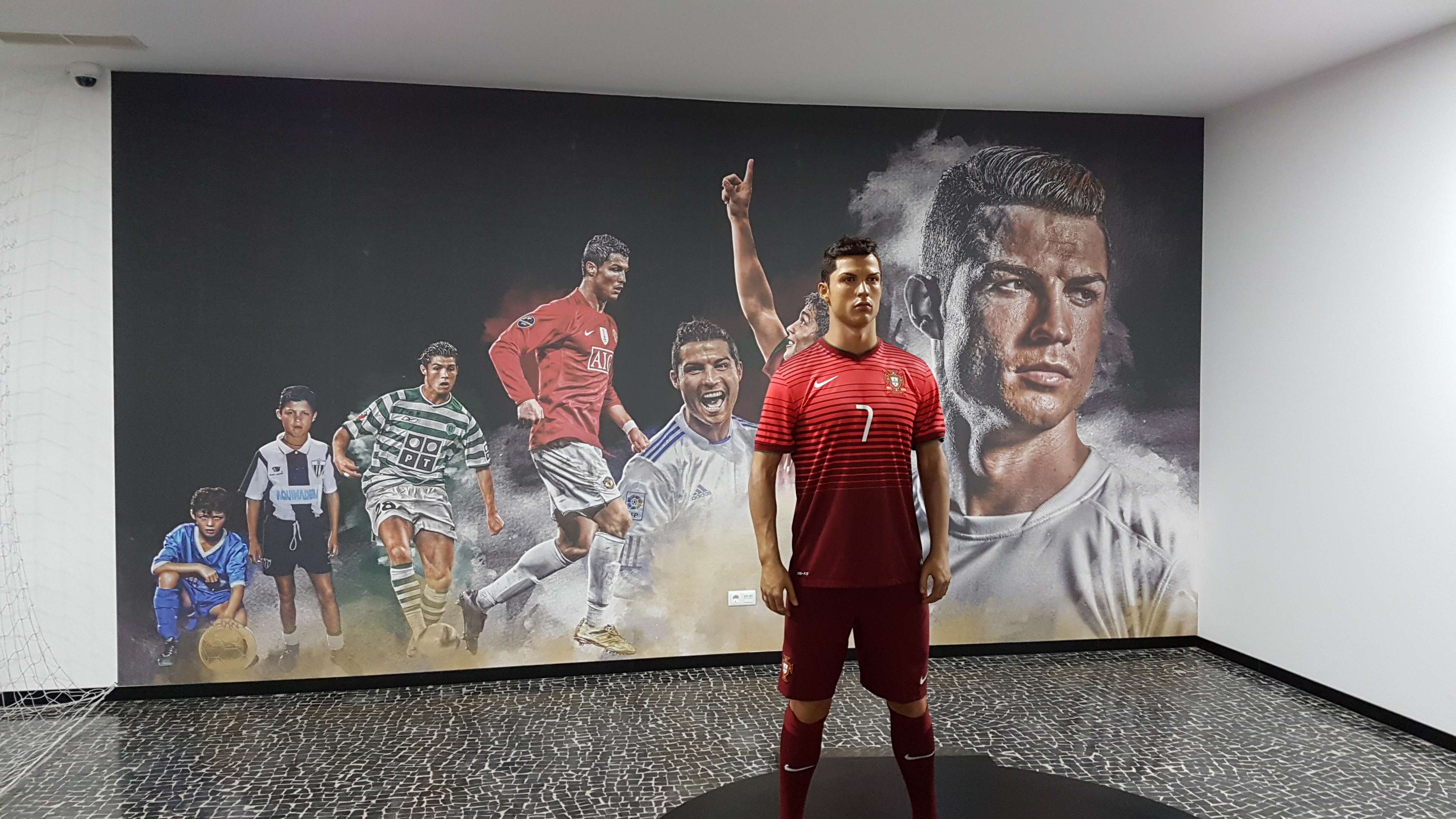
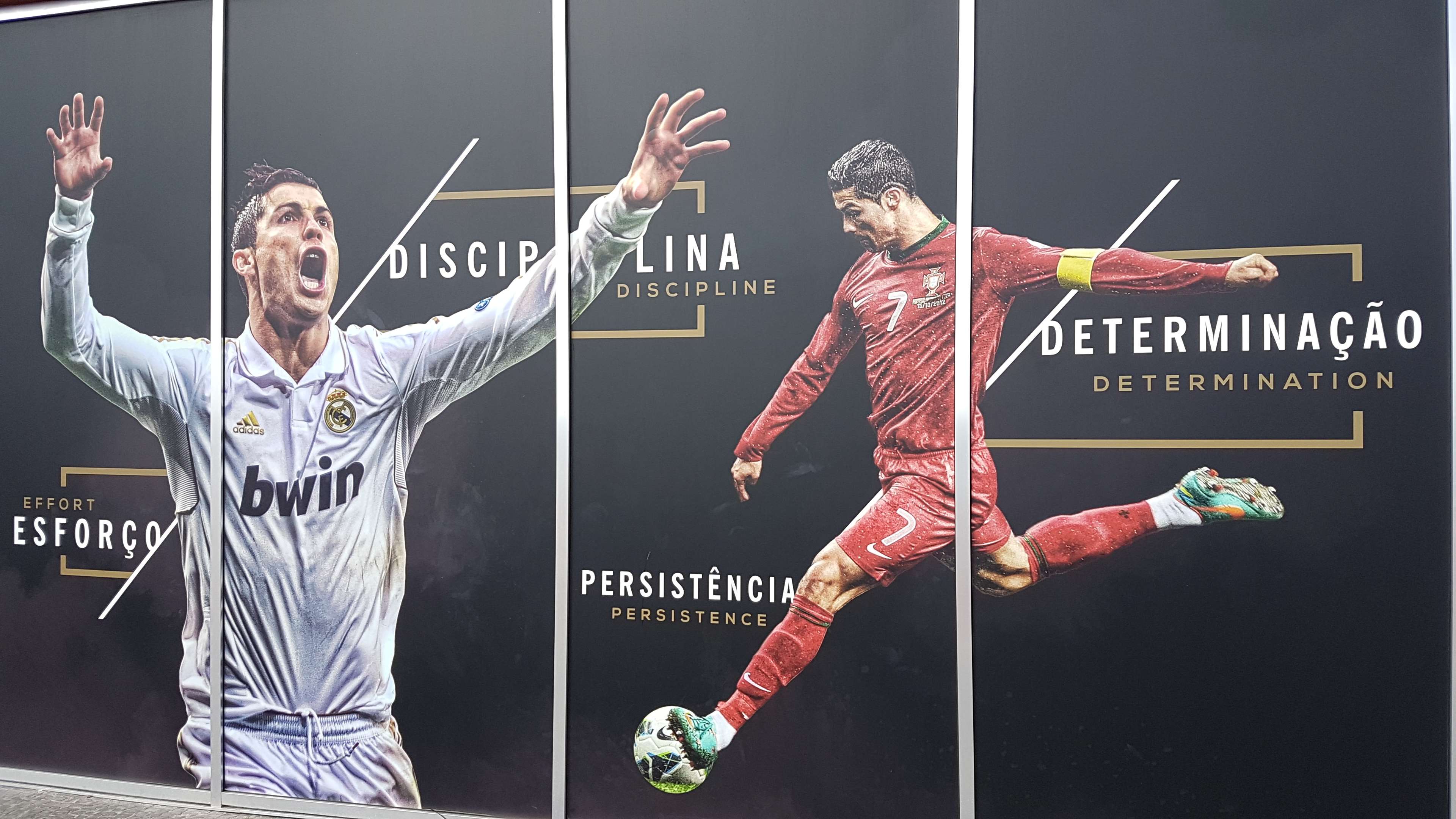 Ben Hayward
Ben Hayward
Barros Sousa still sees his godson on occasions and said: "From time to time I go to Madrid to see a Real Madrid match. For me it is a great satisfaction. It gives me great joy. Obviously, when he plays, I like to watch, I like to see him score goals. I like to see him winning titles, both individually and collectively - it gives me great pride."
De Freitas sees him too, the last time in July when Ronaldo returned to Funchal, and he said: "I like Cristiano a lot. He is a good person and a family man, he has never forgotten his family. And more than that, he has helped so many people here."
And Talinhas added: "I think we should be grateful to Cristiano Ronaldo because he is a worldwide figure, but he always has a special affection for his land, his island, for the place where he was born. We are very proud of him."
Ronaldo, of course, has now opened a museum and a hotel in Madeira, but up in the mountains at Andorinha, images of a young Cristiano continue to adorn the stadium fences - a constant reminder of the club's link to a player who went on to make it big beyond the Atlantic island, leaving his humble roots behind to become one of the finest footballers of all time.
"All of the kids playing here have the dream of Ronaldo," groundsman Rui said. "They want to be like him. All of them.
"But there won’t be another Ronaldo here in Madeira. There’s just this one, there won’t be another."
